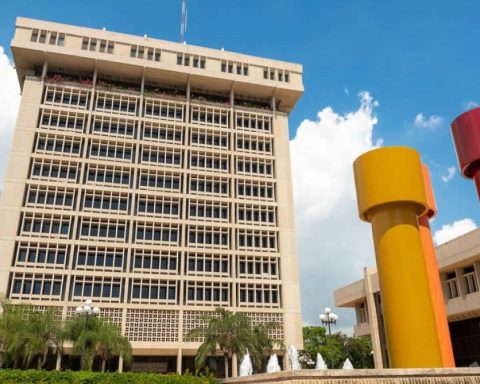The changing context that Latin America has experienced in recent years, where some countries have moved from the political right to the political left and vice versa, has generated a panorama of uncertainty and stress, which although investors they have known how to handle it, at this moment it is a stick in the wheels that takes away the attractiveness of the region.
This, combined with various regulatory changes and a lack of unity in the rules of the game, is causing investment levels, as is happening in Colombia these days, to be below historical averages. However, this is something that is about to change, according to risk agencies.
Venezuela: Opponents protest against Chavismo and presidential elections
In a recent analysis of the financial situation in the region, the international agency Moody’ssaid that the adoption of global standards, such as Basel III and IFRS 9, will improve the capital indicators of Latin American banks, facilitating global comparability. This convergence will reduce the differences between basic and regulatory capital indicators in the region.
“The adoption of global regulatory and accounting standards will improve capital reserves and comparability. This, together with international accounting practices, will reduce the differences between basic and regulatory capital indicators, and this will improve the capital of Latin American banks,” they stressed.
Moody’s.
The Weather Archive
To give an example, they recalled cases such as Brazil, where for them most of the differences are and the introduction of IFRS 9 will make the expenses of provision for credit losses tax deductible, which will reduce the size of DTAs and therefore improve the EPR of local banks.
“All this while the alignment of operational risk-weighting requirements with Basel III standards will likely increase the financial system’s capital by 260 bp by 2028. In Mexico, the total loss-absorbing capacity (TLAC) requirements implemented in 2022 have strengthened common capital and subordinated debt reserves,” they added.
ELN conditions extension of ceasefire on withdrawal from list of armed groups
Simply put, Basel III is international standards that guarantee that banks have sufficient capital to face risks, while IFRS 9 establishes accounting rules for the correct classification and measurement of financial instruments, focusing on the management of credit losses. Both frameworks seek to strengthen stability and transparency in the financial sector.

Colombian pesos
iStock
“Historically, Latin American banks have maintained higher profitability than their peers in developed markets, which has benefited their loss-absorbing capacity. Improvements in the capital ratios of the main countries in the region will arise from upcoming regulatory changes, including the adoption of the additional Basel III standards and International Financial Reporting Standard (IFRS) 9,” Moody’s said.
Beware of capital
Despite the adoption of new regulations, this agency raised the alarm The Bank of Latin America’s capitalisation remains below the global average, while highlighting that the ratio of tangible common equity (TCE) to risk-weighted assets (RWA) in the region is 11.9%, compared to a global average of 13.9%. Brazil, Colombia and Chile have the lowest figures.
Alleged multimillion-dollar overcharges are being investigated in the Road Maintenance Unit
In the specific case of Colombia, the adoption of these standards is expected to improve bank capitalization, although its TCE/RWA ratio is currently one of the lowest in the region (10.3%). This suggests that Colombian banks will need to strengthen their capital reserves to better align with international standards and improve their competitive position in the global market.
While things are not looking good at the moment, Moody’s closed by anticipating that regulatory convergence in Latin America will strengthen banks’ capital indicators, while highlighting that it is a good time to work on the lack of capital.


















